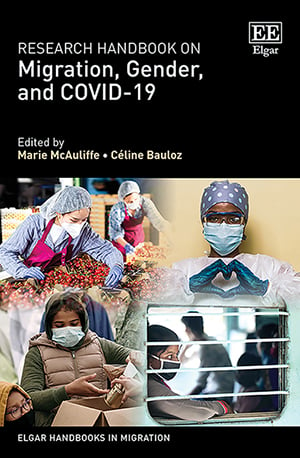Sujata Ramachandran, Jonathan Crush, Godfrey Tawodzera & Elizabeth Opiyo Onyango • Our chapter examines the neglected connections between migration, gender, and food security in the context of the unfolding Covid-19 pandemic, using the case study of female-headed Zimbabwean migrant households in South Africa. We draw on the concept of “migrant pandemic precarity” to highlight the distinctive pandemic-related negative turns and vulnerabilities encountered by migrant households stretched across sending and receiving areas. We contend that unchecked food insecurity is a core dimension of migrant pandemic precarity and food security constitutes an important measure to evaluate the unequal and interconnected outcomes of Covid-19. Drawing on the findings of a new survey with Zimbabwean migrants in Cape Town, we show that female migrants and their dependants experienced considerable deterioration in their food security. Women constitute a significant cohort of mixed migratory flows to South Africa tied to Zimbabwe’s prolonged economic crisis. Many migrant households in poorer urban neighborhoods already faced food security-related challenges before the onset of the pandemic due to ‘crisis-living’. Continued exposure to Zimbabwe’s ongoing crisis, the worsening of these circumstances immediately before and during the pandemic and increased remitting pressures made this cohort especially susceptible to the pandemic shocks.
BOOK
Research Handbook on Migration, Gender, and COVID-19
May 15, 2024
CITATION
Ramachandran, S., Crush, J., Tawodzera, G., & Onyango, E. (2024). Pandemic Precarity, Crisis-Living, and Food Insecurity: Female Zimbabwean Migrants in South Africa. In M. McAuliffe and C. Bauloz (Eds.), Research Handbook on Migration, Gender, and COVID-19 (Cheltenham: Edward Elgar), pp. 180-195.

Featured City
Cape Town, South Africa, Epworth, Zimbabwe
Featured Country
South Africa, Zimbabwe
